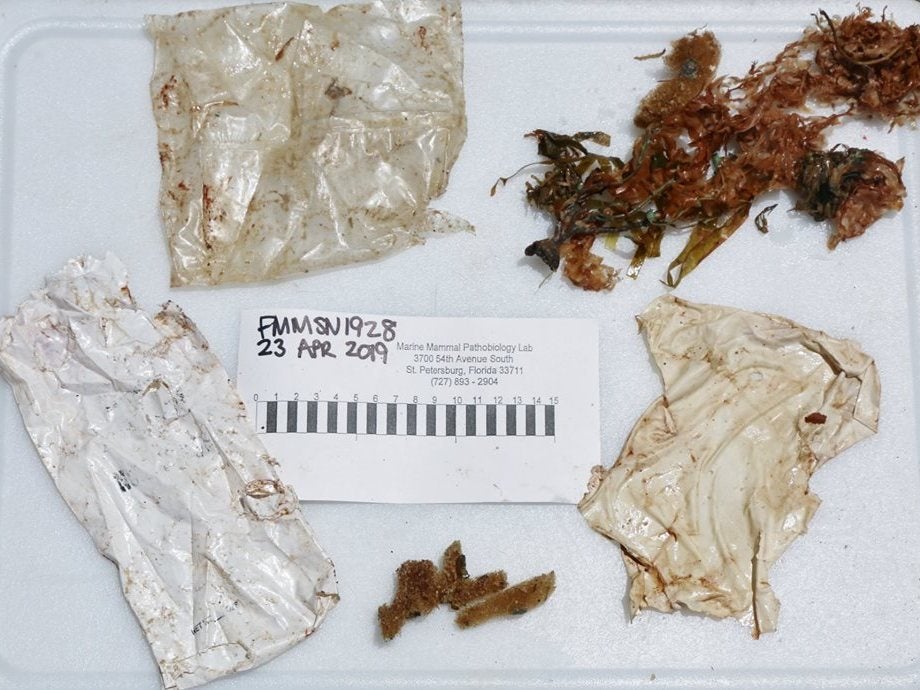Rare deep water baby dolphin found washed up on beach ‘had stomach full of plastic’
Mammal euthanised after becoming stranded on Florida coast

Your support helps us to tell the story
From reproductive rights to climate change to Big Tech, The Independent is on the ground when the story is developing. Whether it's investigating the financials of Elon Musk's pro-Trump PAC or producing our latest documentary, 'The A Word', which shines a light on the American women fighting for reproductive rights, we know how important it is to parse out the facts from the messaging.
At such a critical moment in US history, we need reporters on the ground. Your donation allows us to keep sending journalists to speak to both sides of the story.
The Independent is trusted by Americans across the entire political spectrum. And unlike many other quality news outlets, we choose not to lock Americans out of our reporting and analysis with paywalls. We believe quality journalism should be available to everyone, paid for by those who can afford it.
Your support makes all the difference.A rare baby dolphin has been euthanised after it was found washed up on a Florida beach with a stomach filled with plastic.
Researchers said the rough toothed calf was in poor health, emaciated and should have been in a deep water region with its mother.
A spokesperson from the Florida Fish and Wildlife Conservation Commission (FWC) said its researchers found “two plastic bags and a piece of a balloon” inside the animal.
The organisation also released photographs of the contents of the dolphin’s stomach.
“Although a significant finding, there are many additional factors to consider, such as underlying illness, disease and maternal separation, before a final cause of stranding and death for the dolphin can be determined,” a spokesperson for the FWC said.
“This finding highlights the need to reduce single use plastic and to not release balloons into the environment.”
The mammal was found ashore on Fort Myers beach on 23 April.
Bystanders attempted to help the struggling calf but wildlife officials decided to euthanise it at the beach.
“We made the decision to humanely euthanise on-site,” Michelle Kerr, an FWC spokesperson, said.
The decision was made because of how poor the animal’s condition was, according to the Fort Myers News Press.
Denise Boyd, an FWC biologist, stayed with the baby calf through the night until the early hours of 24 April.
She described the experience as a “tough and long night” and said the calf was so young it “should still have been with mom”.
Instead the animal had strayed into shallow waters.
The animal autopsy, known as a necropsy, revealed that the dolphin was a female and around a year old.
A recent study revealed that plastic pollution in the world’s oceans had significantly increased since the 1990s.
A report published in January 2019 by the Environmental Audit Committee also suggested that British seas were being treated “like a sewer”, with a stream of plastics and untreated waste left in the water.
Additional reporting by agencies
Join our commenting forum
Join thought-provoking conversations, follow other Independent readers and see their replies
Comments